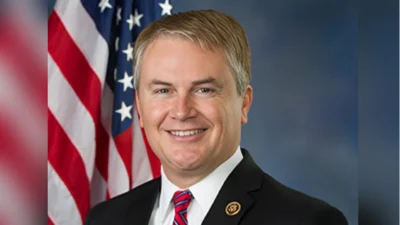Ways and Means Committee Ranking Member Sander Levin (D-MI) appeared today on C-SPAN’s “Newsmakers" program where he discussed his opposition to the Trade Promotion Authority (“fast-track") legislation, the need for a long-term solution to highway funding, and a bipartisan path to tax reform.
Excerpts from the interview are below:
OPPOSITION TO TPA
“I’m in favor of expanded trade. I would like to see a TPP I can support. But right now I cannot - that’s why TPA is having trouble, because TPP is not on the right track. … I don’t want us to lose our leverage. Congress should not be in the back seat and essentially at the end simply have to vote yes or no. We have to be in the front seat - not doing the negotiating - but being a major partner and making sure that TPP is gotten right."
DEMOCRATIC TPA SUBSTITUTE
“Our substitute laid out clear-cut instructions on the key issues, unlike the Hatch-Wyden-Ryan bill, which just has vague objectives. It is really a wish list."
CURRENCY MANIPULATION
“We want currency involved [in TPP] because currency has been manipulated in the past by Japan, which is one of the TPP countries. And by China. It has cost - China’s manipulation - according to some estimates, a loss of one to five million jobs in this country. Middle class jobs."
WORKER RIGHTS
“We in the May 10, 2007 document, which House Democrats wrote and was accepted by the Bush administration, what we said was this: There have to be adopted by the countries the basic ILO standards. So now [within the TPP] we are negotiating with Vietnam and Mexico. Vietnam doesn’t begin to abide by the basic ILO standards.
“Imports are important as well as exports. Imports in this country have essentially dislocated industry in this country - hundreds of thousands of people have lost their jobs. And so we really need to be sure as workers produce these products overseas - and we import them - they are done under decent standards. And that isn’t true today in Vietnam. Workers there don’t have the ability to join an independent union and if they do, the people who help organize them are thrown in jail. I met when I was in Vietnam a month or two ago a person who was in jail for four years and four months because she tried to form or help form an independent organization representing workers. Her two colleagues who were there with her are still in jail. That has to be rectified and remedied as part of these TPP negotiations.
….
“Mexico competes with us - their workers make a fifth the amount that is earned in the U.S. We have to make sure that Mexico essentially lives up to the basic ILO standards that we wrote into the May 10th agreement. The language is important, but the reality is also important and today the reality in Mexico and in Vietnam is that the workers do not have their basic rights as these countries compete with us."
INVESTOR-STATE DISPUTE SETTLEMENT (ISDS)
“In the past, ISDS hasn’t been a major problem, but times have changed. The President says we should not be wedded to the status quo - ISDS is an example of where we should not be. In recent times, cases have expanded. For example, Phillip Morris is challenging in Australia their regulation of tobacco and they are doing it through an arbitration panel. In Canada there has been an objection to certain procedures relating to their medicine. So instead of the company, Eli Lilly, going through the courts of Canada, they have been going through an arbitration panel. There is a recent case where an investor decided to challenge a Canadian environmental regulation that related to a quarry, and instead of going through the Canadian courts, essentially decided to go through arbitration.
“So we have come up with some ideas as to how to reform ISDS.... This is an example of the effort of myself and others to come up with ways to shape trade so as we expand it the benefits are spread. There are four recommendations we have come up with. Unfortunately the administration has failed to adopt any of them and has simply proceeded along -- in this case -- the path of the past. I think that is a mistake. I think there is a real concern and that is why we should not fast track this TPP as it presently stands."
UNDERMINING DODD-FRANK
“There are some in Europe … who want financial services placed within the [TTIP] negotiations. That could lead arguably - I don’t think under this administration, but a future administration - to efforts by the Europeans to undo or force us to modify Dodd-Frank. This administration says, ‘well, Congress would have to approve that and it is a matter of sovereignty.’ But Congress has to approve all major changes in negotiations through the implementation bill. … I think we don’t want to leave open the possibility through these TTIP negotiations that Dodd-Frank could be undone by a subsequent administration bowing to the demands of banking interest, including those who are now stationed in Europe."
KEEPING TRADE BILLS SEPARATE
“In the end, each of the four [trade bills, including TAA] has to be evaluated on its own and voted on its own. I don’t want TAA - it’s very important, I helped author it - to be used essentially as a sweetener on TPA, on fast track. Fast track has to stand on its own, so does Trade Adjustment Assistance. We need to get expanded trade right, that is the key point. I have helped author trade bills in the past, but this is an example, TPP, where they haven’t gotten it right at this point on many major issues."
LONG-TERM SOLUTION TO HIGHWAY FUNDING
“We need a long-term solution, a six-year solution. I am not sure which is a better way to go to get there - I think it might take six months. … But if we can do it in two months, that is fine. The main point is that we need at long last to step up to the plate on highways and transportation and have a long-term approach. We in Michigan know that first hand. … We need to step up to the plate federally. I want a long-term solution and we will see when we get back next week what is the best way to do that."
MORE REVENUES FOR HIGHWAY FUNDING
“There have to be more revenues - that is what transportation is really all about. Here, there is a deep division between the two parties. The Republicans tend to write off any use of more revenues. You can’t do a long-term package without more revenues. We need to get that straightened out."
TAX REFORM
“Chairman Camp and I started some years ago now - we set up working groups on tax reform to go into the issues. That was a productive step. The trouble is after that the Republican majority decided to put together a tax reform package strictly on a partisan basis, and that essentially came to a dead-end. Though I think Chairman Camp came up with a product that at least tried seriously to address the issues. We now need to learn from that experience and realize that tax reform is important if it is done correctly. And the only way to do it, so it has broad support and can really make sense, to get enough votes, it has to be done on a bipartisan basis."







